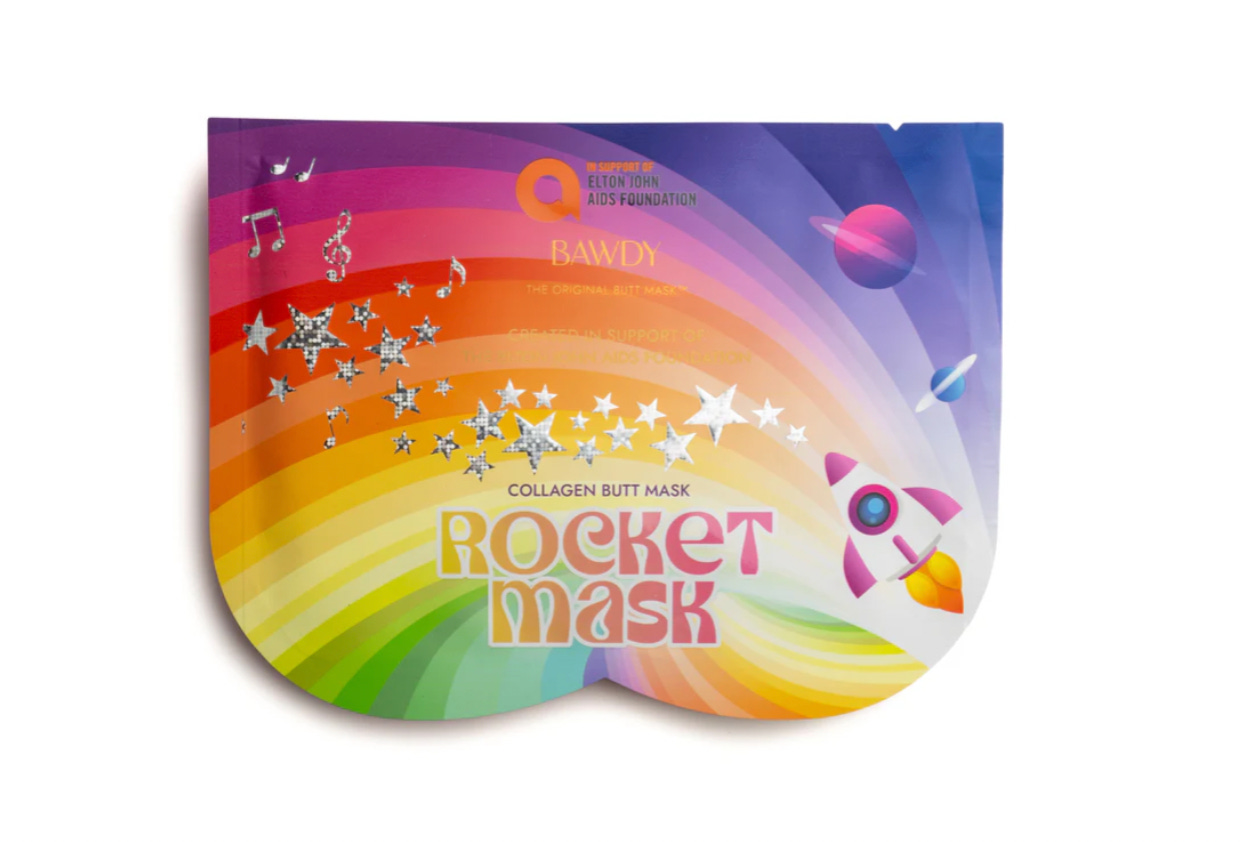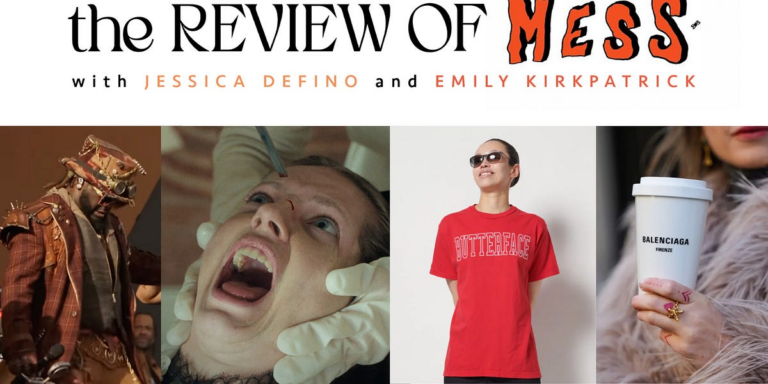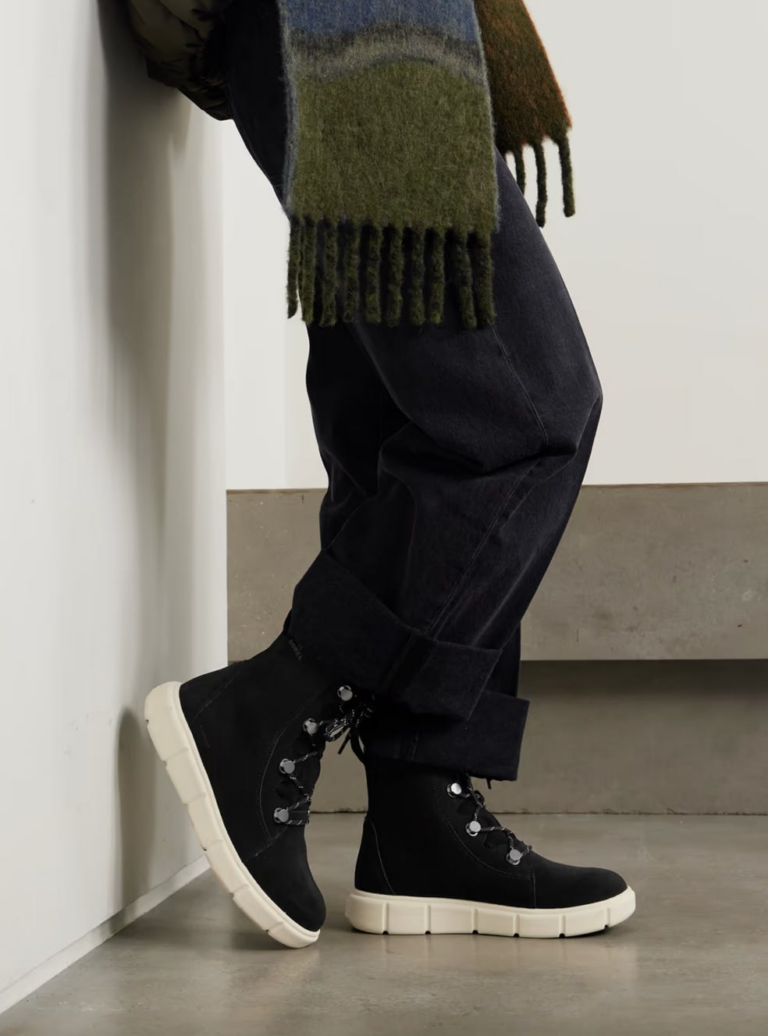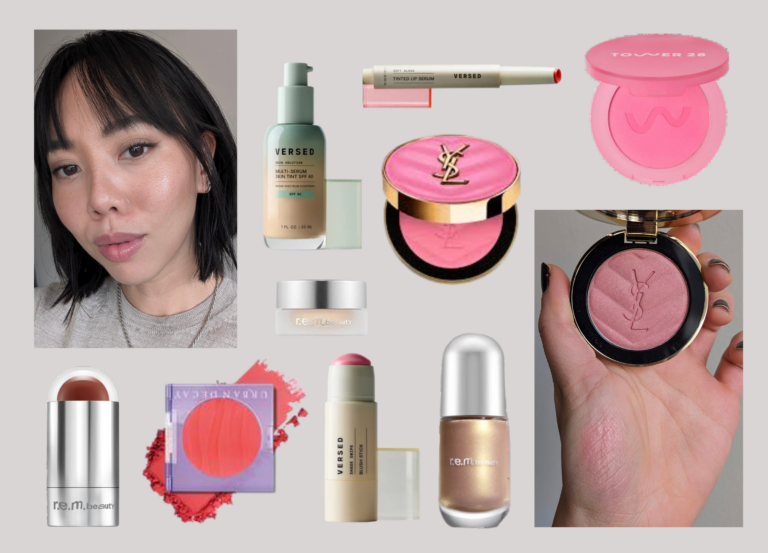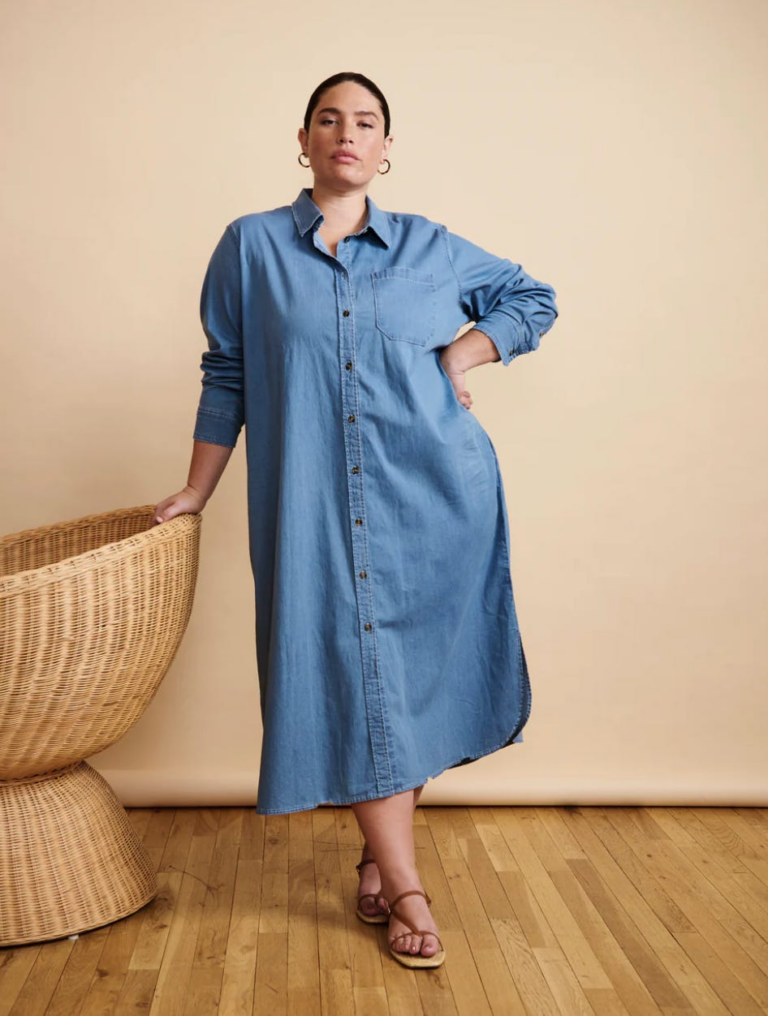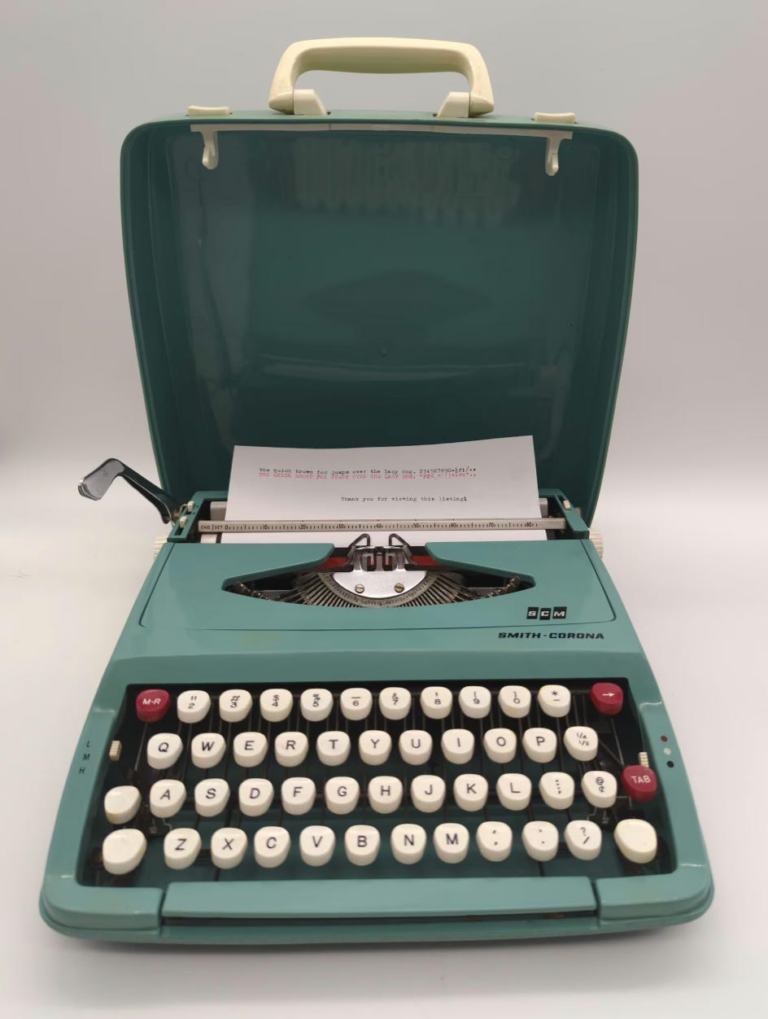Werk Ethic
Hello and welcome to another edition of THE DON’T BUY LIST! Some newsletter admin to start: I’m going to experiment with making the DBL a weekly feature that’s free for all, rather than twice a month and paywalled. Longer articles and investigations will go behind the paywall instead. I think both free and paid subscribers will get more out of the newsletter this way. Additional announcements to come 🙂
Anyway! Onto the links…
IN THIS ISSUE: ChatGPT as cosmetic consultant! Chin implants as power tools for alpha males! Invisible pores! Injectable supremacy! The Tower 28 sunscreen snafu! “The Barbie Drug!” Clearing your assne for Pride! Kylie Jenner’s boob job! Kris Jenner’s face lift! Teen skin damage! The false “sustainability” of under-eye masks! Shaving your eyelashes! Plato! Kant! Nietzsche! Bieber! & more!
I talked to the Washington Post’s Tatum Hunter for “Am I hot or not? People are asking ChatGPT for the harsh truth.” Hunter writes:
“In a novel use case, people are uploading photos of themselves, asking [ChatGPT] for unsparing assessments of their looks and sharing the results on social media. Many also ask the bot to formulate a plan for them to ‘glow up,’ or improve their appearance. Users say the bot, in turn, has recommended specific products from hair dye to Botox. Some people say they have spent thousands of dollars following the artificial intelligence’s suggestions.
… Users see ChatGPT as a more objective measure of beauty because, unlike friends and family, it doesn’t factor in qualities such as kindness or humor, said Jessica DeFino, a beauty critic who writes the Review of Beauty newsletter. Internet-era beauty standards turn the self into an object, she said, and what better way to evaluate an object than by asking another (AI-powered) object?
‘If we’re trying to optimize ourselves as beautiful objects, we can’t consider the input of a human who is, say, in love with us,’ DeFino said.”
Read the whole thing here.
Funny story: The New York Post picked up the WaPo piece and characterized me as someone in support of AI-enabled glow-ups. I promptly emailed the reporter to panic/complain/demand a correction — I’m very annoying — which they thankfully issued. They even let me elaborate a bit:
It’s not surprising that people are asking bots to evaluate their supposed beauty — new technology has always influenced beauty standards, from Photoshop (see Charlotte Tilbury Airbrush Foundation) to smart phones (the “glass skin” trend recreates the glassy sheen of a screen) to Instagram Face (wherein people adopt algorithm-approved features through plastic surgery). Today’s standard of beauty, particularly for women, is cyborgian, robotic, inhuman; in that sense, it’s understandable that people want to go to the supposed “source” — AI — for advice. Putting aside the baseline sadness of outsourcing not only the functions of our brains but the appearance of our bodies to a slop machine that’s destroying the planet, the idea that ChatGPT’s beauty advice is somehow “objective” is absurd. The beauty standards ChatGPT is encouraging users to meet aren’t honest evaluations from some omniscient source. Bots can only regurgitate the human-created content that’s fed to them — and humans’ ever-shifting beauty standards are not created for the purpose of joy or fulfillment, but as a means of control. Attempts to embody this ideal siphon people’s time, money, energy, attention, and effort. In addition to the potential physical consequences of certain cosmetic products and procedures, there are psychological consequences to consider. Beauty standards are associated with increased instances of appearance-related anxiety, depression, dysmorphia, disordered eating, obsessive behavior, and self-harm. They do not contribute to collective human flourishing (but they do make a lot of money for the ruling class!).
Much like ChatGPT itself…
Turns out that Jones Road campaign you guys got sooo mad at me for critiquing in the last podcast — the one for Just Enough Tinted Moisturizer — was created with AI.
Lately I keep circling this thought, too: how easily we slip into the old philosophical loop that connects truth, beauty, and goodness (Plato, Kant). It’s a small jump from assuming any given technology embodies some scientific or intellectual truth to assuming this truth will provide an experience of beauty to assuming this technology/experience is morally good. (Or whatever order it takes — an assumption of goodness leads to assumptions of beauty and therefore truth, or an assumption of beauty leads to assumptions of truth and goodness, etc.)
This truth-beauty-goodness ouroboros might have something to do with the positive reaction to Kris and Kylie Jenner’s recent “cosmetic transparency”: Kris confirmed her facelift, Kylie revealed the details of her breast implants (“445 cc, moderate profile, half under the muscle. silicone!!! garth fisher!!!”), and the beauty-pilled public applauded. Past studies have shown that people tend to view those who’ve had overt cosmetic surgery as morally inferior — it’s associated with lying — but admitting to said surgery, it seems, restores virtuousness; i.e., the truth is good and thus good for “the girlies.” But I’m not here to cast moral judgment! I think more relevant to the Jenners’ reveal and the public’s reaction is a broader post-Glossier cultural shift from wanting to appear effortlessly beautiful (regardless of the effort involved) to wanting the effort one puts into becoming beautiful to be acknowledged. I pointed this out a while ago, but I keep coming across TikTok and Instagram videos from women who take offense to comments that imply they’re “naturally pretty” and prefer to be seen as “doing the work.” They’re reframing aesthetic labor as worthy labor, as a sincere and important effort that should be appropriately recognized and rewarded. After all, why give “nature” the credit when you put in the time, endured the pain, and paid the bill? It’s girlboss hustle culture for glow-ups, Protestant work ethic as applied to prettiness. Call it werk ethic!
In her “What’s In My Bag” video for Vogue, Hailey Bieber, founder of Rhode and popularizer of “glazed donut skin”, pulled out paperback copies of Critique of Pure Reason by Immanuel Kant and The Portable Nietzsche.
It was a joke — she also claimed to use a perfume called “Eau d’Nepo” — but still: What would Kant or Nietzsche say about Bieber’s take on beauty? I think the former would argue that Bieber isn’t in the business of “beauty” at all. For Kant, an experience of beauty must be disinterested — that is, appreciated for its own sake, without hope for profit or utility (like a $1 billion acquisition, or the social/economic/political rewards of complying with cultural appearance norms). Nietzsche might agree with Bieber’s framing of beauty as something self-created — he associated beauty with “will to power,” his concept of the innate human drive to become and overcome. But I also think he’d be horrified by the idea that mass production/consumerism could ever serve as the means for such becoming, and would view the Beiber/Rhode standard of glazed conformity as something to overcome in the pursuit of self-created beauty. I don’t know though! Kant and/or Nietzsche scholars, sound off in the comments!!
Skincare brand Dr. Lancer just sent out a marketing email with the subject line, “Your pores called. They want to talk.” Inside: a range of products promising to shrink and blur them into oblivion. The idea that your pores are desperately trying to communicate with you only to say “I don’t want to exist anymore!” is both very funny and perhaps a bleak peek into the collective psyche.
For the Summer 2025 print issue of FASHION, I talked to
about vitamin IV drips, beauty as pain, and injection supremacy. Love an excuse to go out and buy a physical, flip-through-able magazine (but you can also read the story online here).
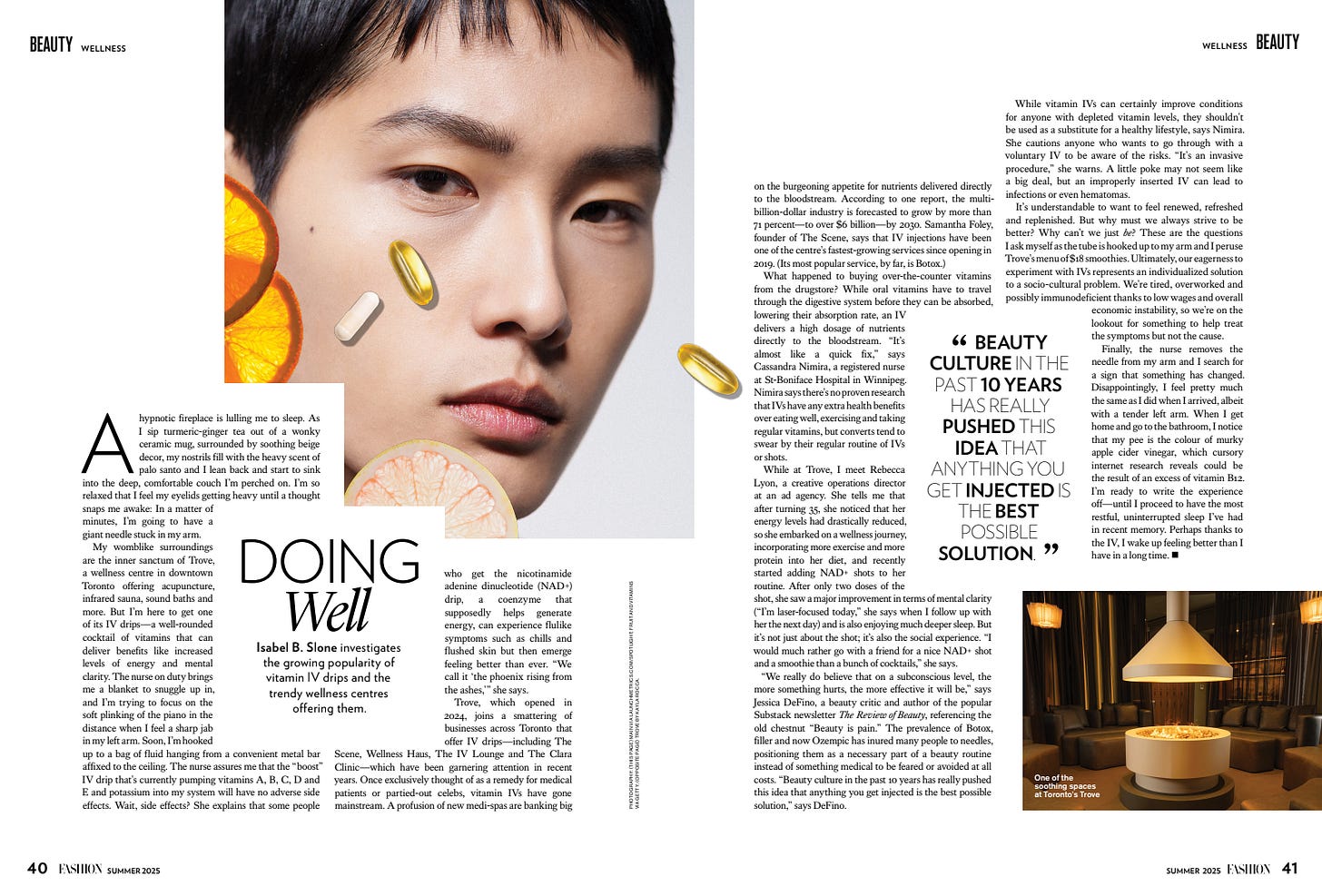
People are injecting themselves with a non-FDA-approved synthetic peptide called Melanotan II to get tan without tanning. The risks — nausea, hyperpigmentation, skin cancer — are many. The people don’t care! They call it “the Barbie Drug.” This, paired with the ventriloquist dummy vibe of Mar-A-Lago Face, the cyborgian state of modern beauty standards, and the popularity of porcelain doll makeup, leads me to believe this country has an automata fetish.
I love when Haley Nahman thinks/writes/talks about beauty! Highly recommend listening to her voice note on “pretty privilege” (and not just because she references one of my Ask Ugly columns).
A new study from Northwestern Medicine confirms the skincare routines of children and teens on TikTok (girls ages 7 to 18) can damage their skin long-term. “The top-viewed videos contained an average of 11 potentially irritating active ingredients … putting the content creators at risk of developing skin irritation, sun sensitivity and a skin allergy known as allergic contact dermatitis,” News Medical reports. Potential damage doesn’t stop at the dermis. Per the study’s co-author Dr. Molly Hales, “It’s problematic to show girls devoting this much time and attention to their skin. We’re setting a very high standard for these girls. The pursuit of health has become a kind of virtue in our society, but the ideal of ‘health’ is also very wrapped up in ideals of beauty, thinness and whiteness. The insidious thing about ‘skin care’ is that it claims to be about health.” LIKE. I’VE. BEEN. SAYING! This study does not surprise me whatsoever but it does fill me with renewed rage for the reporters who covered the Sephora Tween craze by saying “it’s only lotion” or “let the girls slather.”
Tower 28 released a new mineral sunscreen this month, claiming it had “no white cast” and “universal” wearability. Black customers quickly discovered this was not true:
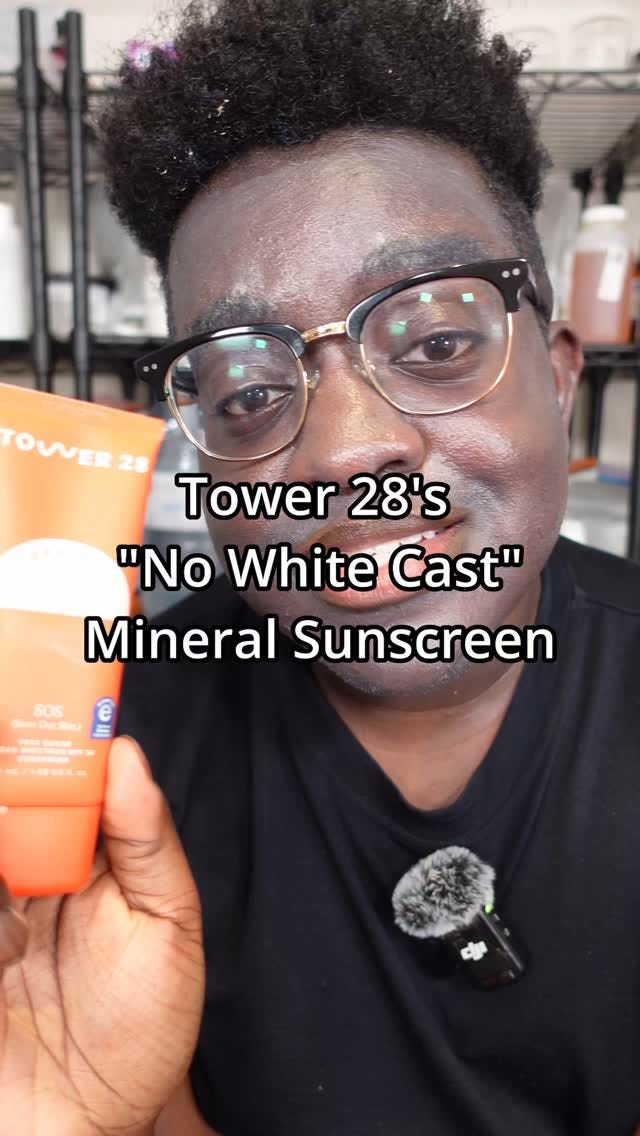
Founder Amy Liu responded to the backlash saying, “Despite our best efforts in testing, the truth is, we missed the mark. We described it inaccurately — saying it had ‘no white cast’ and called it a ‘universal tint’ — which was misleading. That was a mistake, and I take full responsibility. I’m sorry.” She promised to improve the brand’s testing procedures in the future. The situation is interesting to me because it reveals that while Liu and Tower 28 knew it was important for their sunscreen to be wearable and universally appealing, they prioritized seeming to have these qualities (through marketing) over actually having these qualities (through formulation and testing). Which parallels the broader problem of beauty culture, really: appearing to be takes on more importance than being.
Sabrina Carpenter can’t stop making music videos that double as spon-con for Prada Beauty. “Manchild” marks her third.
“Your ‘Recession Hair’ Is a Privilege,” Sophie Meharenna writes for Allure. “When you’re Black, like I am, your hair isn’t something you can scale back on without risk.” As I said in Vogue Business back in April, the beauty industry will survive the current economic conditions not because people see cosmetics as fun or joyful or an affordable “little treat,” but because beauty culture has trapped people in “a cycle of aesthetic labour they can’t easily escape without facing social, financial and political fallout. Fear of those consequences, which hit marginalized groups hardest, will keep consumers consuming.”
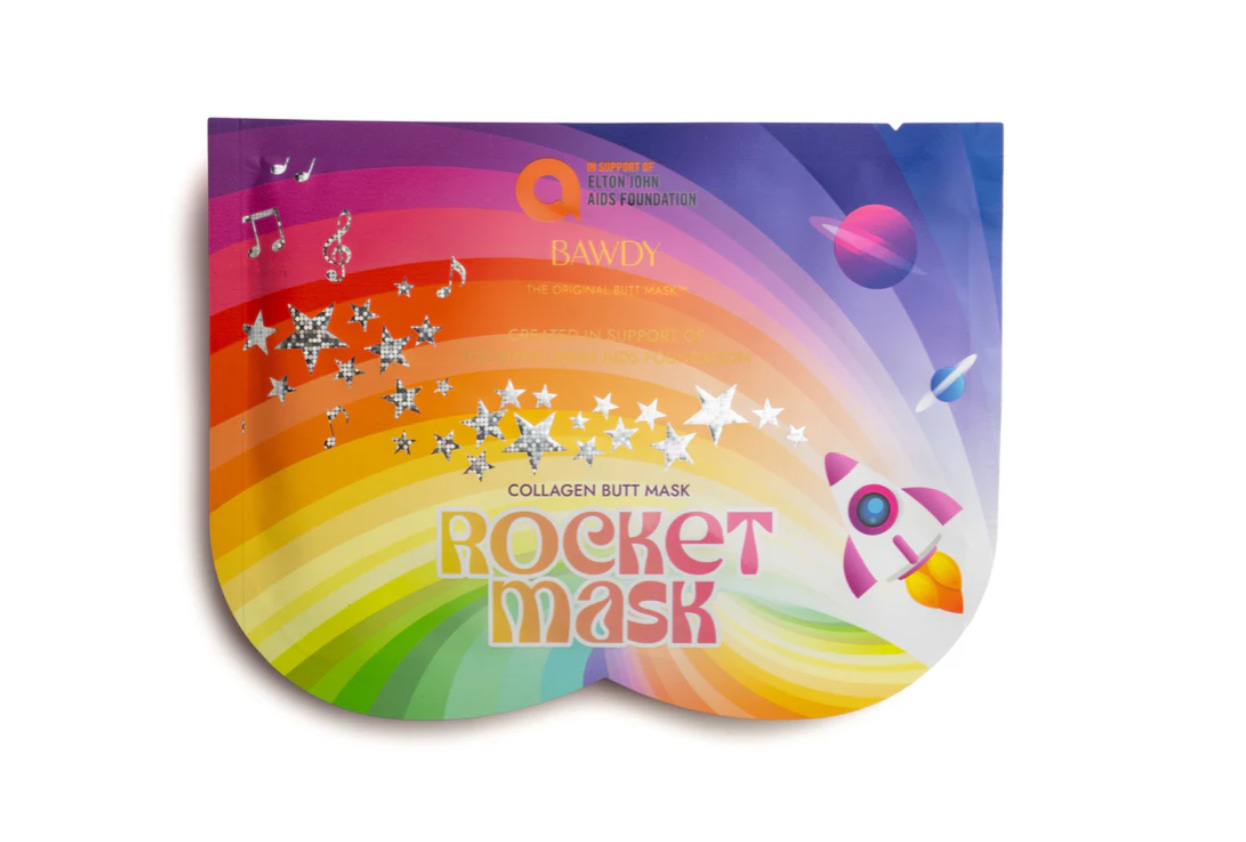
It’s Pride Month! Why not celebrate with a rainbow-hued, Elton John-themed sheet mask for your ass, courtesy of Bawdy Beauty’s Rocket Mask? (To be fair, a dollar of every sale does go to the Elton John AIDS Foundation.)
This recent Politico story on “The Plastic Surgery Procedure Booming Among Washington Men” (chin implants) is a good read. It can also basically be summarized by one my 2025 beauty predictions from last December: “Beauty will continue to reach more men — not through the gender-inclusive language popular over the past couple years, but by positioning skincare, injectables, plastic surgery, and hormone treatments as POWER TOOLS FOR ALPHA MALES. This will further expose masculinity as nothing more than an effortful performance — and yet! The industry’s most hyper-masculine devotees, many of whom have influence in conservative politics, will 1) still insist that femininity and masculinity are biologically fixed and 2) work to restrict trans people’s access to gender-affirming healthcare.”
“Young boys on TikTok are shaving off their eyelashes, ostensibly because long eyelashes are girly,” Constance Grady reports for Vox. “Ironically, the pursuit of nonsensical and often contradictory beauty standards have led young men to the same place that young women have long found themselves: with crippling body dysmorphia.”
I’m on the latest episode of INSIDE + OUTSIDE with Jessica Murnane! We talk about (my) girlhood, child beauty pageants, playing in the dirt, and an aesthetic trend I call the “self-as-shelf.” Listen here.
Finally, I’l leave you with a story I’ve been pitching larger outlets for literal years with no success. My argument: When reusable under-eye masks were introduced to the industry, they were framed as a “sustainable” innovation — not single-use, and therefore eco-friendly. Brands covered them in logos and marketed them like merch. It worked! Reusable under-eye masks have reached status symbol status. People flaunt them in selfies, celebs wear them on pap walks, they’re hallmarks of the “self-as-shelf” aesthetic and the “morning shed” and “werk ethic.” At what point, then, does a status symbol lose its claim to “sustainability”? Looking at the market over time, it’s clear that the invention of this product spawned an entirely new sector of production and (conspicuous) consumption; one that doesn’t cut back on industry waste so much as create different waste (waste being not only the item that gets thrown away, but the environmental impact of its formulation, testing, mass production, packaging, distribution, shipping, etc.). I’ve been dying to do a deeper investigation into this — did reusable eye masks slow the growth of single-use eye masks? did they generate more demand for eye masks of all kinds? what’s the environmental footprint of the reusable eye mask market? what beauty standards does it perpetuate and accelerate? how do those beauty standards affect people and the planet? — and Cocokind just added fuel to my fire:
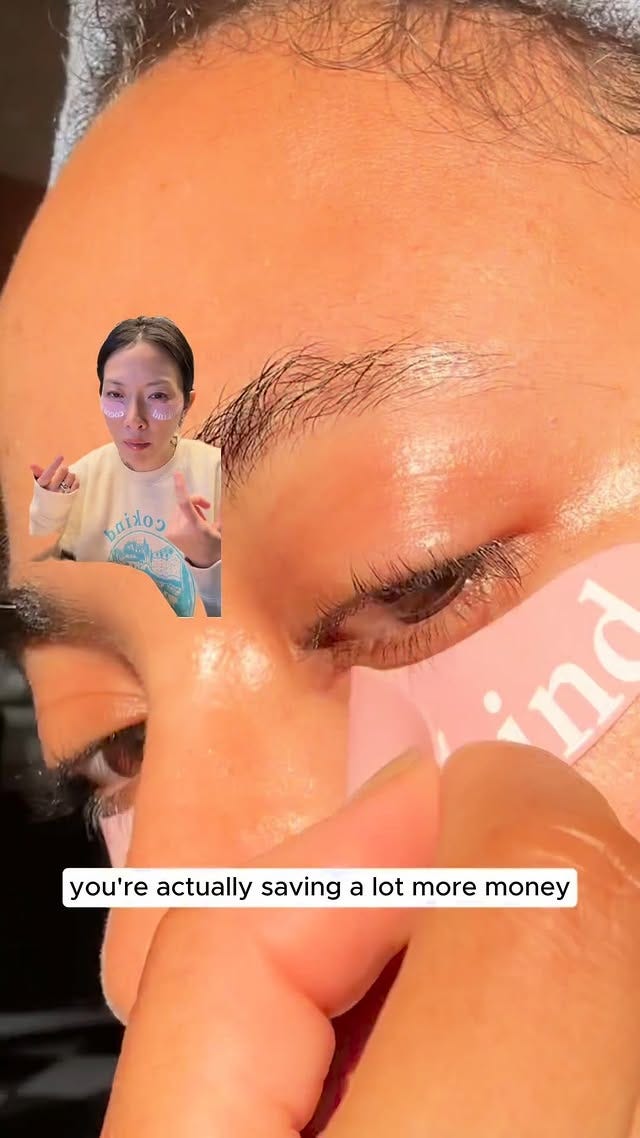
The brand recently announced the release of its own logo’d under-eye patches and gave credit to Dieux for carving out this new space in beauty. Reusable eye masks — which are useless on their own, by the way, and must be used in conjunction with a second product, like eye serum or eye cream, which are typically marketed as effective as-is, i.e. without a mask on top — are “in style more than ever,” founder Priscilla Tsai said. So she decided to make more. Lol. Sustainable!
You’re Gonna Die Someday No Matter How Young You Look,
Jessica

